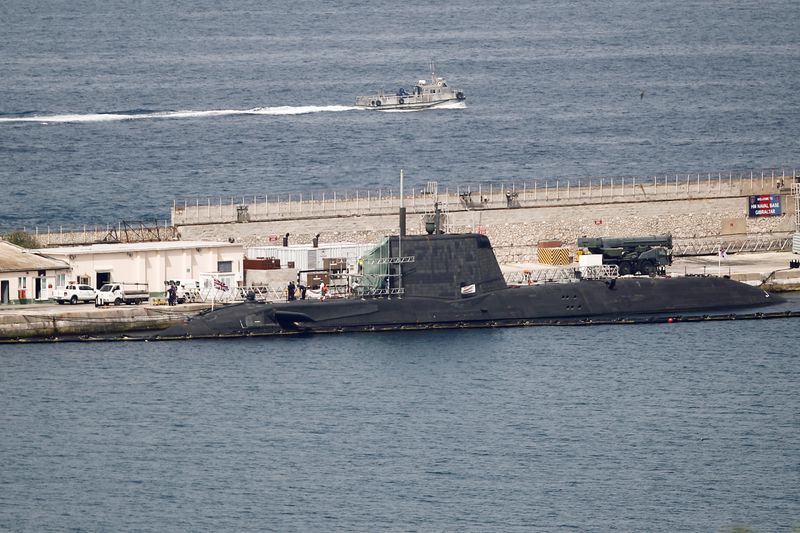LONDON (Reuters) - Prime Minister Rishi Sunak will set out plans to boost Britain's nuclear workforce on Monday, as increased submarine building and the growing needs of the nuclear energy industry are forecast to create 40,000 new jobs by 2030.
The government will partner with defence companies BAE Systems (LON:BAES), Rolls-Royce (LON:RR) and Babcock (LON:BAB) plus energy giant EDF (EPA:EDF) to invest more than 763 million pounds ($961 million) by the end of the decade in skills, jobs and education, it said in a statement.
The government needs to ensure there are sufficient nuclear workers to help build and maintain its fleet of submarines, vital for defence and security as they are the basis of the UK's continuous at-sea nuclear deterrent.
"Safeguarding the future of our nuclear deterrent and nuclear energy industry is a critical national endeavour," said Sunak, who will on Monday visit Barrow-in-Furness in the northwest, where Britain's nuclear submarine industry is based.
"Today we usher in the next generation of our nuclear enterprise, which will keep us safe, keep our energy secure, and keep our bills down for good."
Britain's nuclear submarine industry will expand in the coming years as new boats are built for the UK, and also Australia under the AUKUS security pact.

Further details on how Britain will deliver the capabilities necessary for to maintain its nuclear deterrent will be published by defence secretary Grant Shapps on Monday in the "Defence Nuclear Enterprise Command Paper", Sunak's office said.
As part of it plans to boost the nuclear workforce, the government said it will invest 200 million pounds in Barrow over the next decade to help support people into jobs, improve the area's transport infrastructure and build more homes.